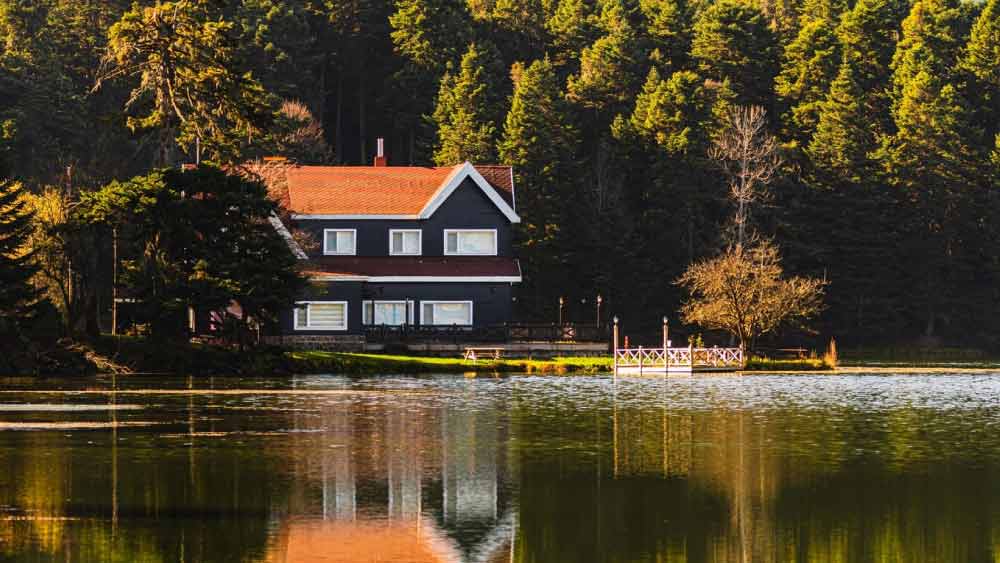Top Tips to Protect Your Home From Urban Flooding Damages this Monsoon

Our house is our haven. We go there for stress relief and chilling. Where our family and pets live, and we keep our most valuable belongings. So, the feeling that danger creeps around every corner or that a disaster may strike at any time can be scary.
Though we can’t really avoid natural calamities, we must take adequate safety measures to ensure minimum to no damage to our house and belongings. This article lists practical tips to protect your home against flooding and other disasters.
8 Hacks To Help Prevent Flooding in Your Home
1. Invest in Flood Protection
Every year, floods destroy hundreds of thousands of lives. According to ABC News, the number of American properties at risk of flooding is at a whopping 14.6 million. There are steps you can take to reduce the chances of water invasion, even when a natural disaster is unavoidable.
Start by installing a sump pump or foundation vents. A pump will force the water out of your home, while a vent will help the water flow through your home rather than collect. To prevent water from entering via cracks, put sealant on the basement walls and floor.
Grade your law so that water will drain away from the house and point downspouts away from the house. Place expensive equipment such as washers, dryers, water heaters, and air conditioners on concrete blocks raised above the floor or ground to safeguard them. If a flood hits, photograph or film the flooded area and your property.
Only 49% of homeowners maintain a property list. It’s helpful to have when dealing with insurance. Consider adding extra coverage, if your house insurance doesn’t cover flood damage.
2. Install Smart Security Measures

A security system may do more than just keep criminals out of your home and property. With the creation of Smart Technology, security systems can now be connected to smoke and carbon monoxide detectors and alert you and the fire dept immediately when anything is detected. They can even provide backup power if you lose electricity. According to highstuff.com, motion detectors can be set up in the system and alert to suspicious activity.
3. Prevention Is Key
The best way to keep your home safe is to have things in place and situated to keep disaster at bay. Consider raising the level of electrical outlets and keeping metal and synthetic materials away from them. This will help prevent fire and damage in a flood. Static electricity can build up, and even a single spark can contain up to 3,000 volts.
Reinforce doors and windows by installing storm shutters. If you live in hurricane-prone areas, keep plywood and sandbags in stock. Also, make sure you know where the shut-off switches are for electricity, water, and gas.
Also, you can use the best flooring for floods as a long-term investment to prevent rainwater damage.
4. Create an Emergency Plan and Kit

There’s only so much we can do to prevent disaster and danger-proof our homes. We may need to evacuate at some point. So, an emergency plan is really necessary. Have a route and meeting place in case family members get separated.
Don’t forget to include any pets you have in the plan. Keep a bag in a secure place filled with water, non-perishable food, medications, important documents, flashlights, extra clothing, and blankets. Consider keeping some cash in there as well.
5. Prevent gutter from blocking
There might be a lot of reasons for the gutter getting blocked. If you live in areas with a lot of greenery, leaves might be stuck in the gutter line, or sometimes even birds build their nests in those hidden areas. And we only find these obstacles when rainwater does not go down the drain.
To clear the clogged gutters, these tips would be helpful:
- Installing gutter guards will keep muck, dirt, debris, and leaves away, making it easier to drain rainfall.
- Use the Hedgehog Gutter Brush that acts as a hurdle to keep the gunk and debris away, allowing water to run freely through the pipeline.
- In the autumn season, you should clean the gutters more often because leaves, twigs, and dirt can accumulate more.
- Trim the trees with low-hanging branches around your house. It will eliminate the issue in the first place.
6. Check and Repair the Exterior
Rainwater can leak through the exterior walls of the house due to poor maintenance or no maintenance at all. There can be gaps, damages, and cracks that cause leakage or dampness on the walls, and it can help propagate mold growth.
So, how to block water from entering the house? Simply identify the cracks and gaps in the walls and fill them. Or you can apply waterproof sealant on the outside. Also, check for any broken drainage pipes inside the wall that might be causing the dampness. These little home upgrades will prevent your property from possible rainwater intrusion during monsoon.
7. Identify Your Flood Zone
These are the classified areas based on their risk of flooding. These classifications help people, communities, and authorities understand how much they are prone to flooding. If you discover that you are living in a susceptible region, you must make appropriate adjustments to your home. Choosing the best flooring for flood-prone areas can make a significant impact. The most suitable options are vinyl, ceramic, rubber, and concrete.
So, how to prepare your home for a flood? It’s simple! You just have to identify the flood zone you are in and do some maintenance on house walls and flooring, and you will be comparatively safe from rainwater damage.
8. Build a Flood Wall Around Your House
When the rainwater pressure is too high, you can construct a flood wall. But it isn’t as simple as it appears. Thus, many would rather have specialists tackle it. However, it is not feasible in many cases.
Conclusion:
Flooding and other risks may strike any property at any time. We cannot control the weather or other possible threats, but we can plan ahead of time to reduce the possible adversities. We hope you find these suggestions useful in securing your house.

news via inbox
Sign up and never miss out on the latest news and updates at HighStuff




